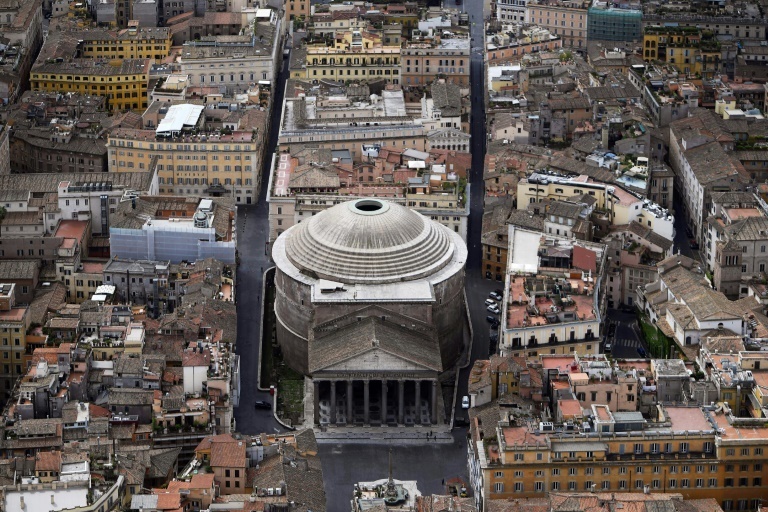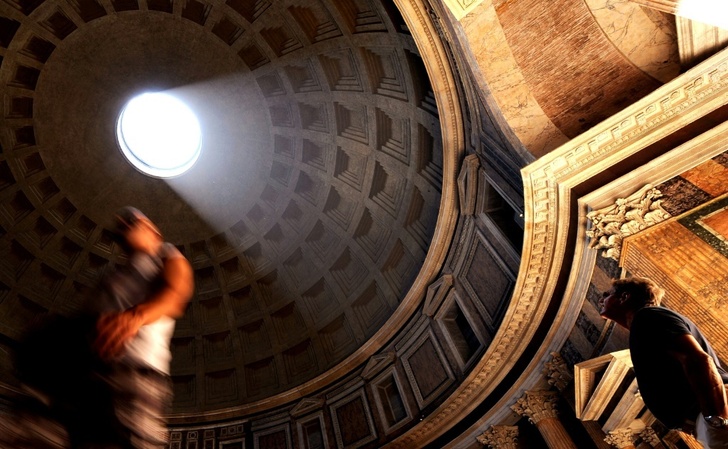One of Rome's oldest and best loved monuments, the Pantheon, will soon start charging for entrance, officials said Thursday -- drawing a mixed reaction from tourists.
The price for entry, which is currently free, has yet to be fixed but would not exceed five euros ($5), while minors and Rome residents would be exempt.
The change was "based on common sense", Culture Minister Gennaro Sangiuliano said, and the price "modest" for Italy's most visited cultural site.
The 2,000-year-old building is currently a consecrated church and part of the proceeds from ticket sales will go towards the diocese of Rome.
Most of the money -- 70 percent -- will go to the culture ministry, which will bear the costs of cleaning and maintenance.
Among the tourists visiting the Pantheon on Thursday, reaction to the news was mixed.
"It makes sense. Conservation requires money, and it doesn't shock me to make tourists contribute," said Gustavo Rojas, a 37-year-old from Chile.
- 'Open to everyone' -
Alessandra Mezzasalma, a 46-year-old Italian tour guide, however, told AFP, it was "shameful".
"The Pantheon, and historical monuments in general, are collective assets and they should remain open to everyone. Culture must be as inclusive as possible," she said.
"If I had to pay, we wouldn't have gone in," said French tourist Clara Dupond, 21.

One of the best-preserved relics of ancient Rome, the Pantheon is famed for its extraordinary dome, which measures 43 metres (140 feet) in diameter and includes a circular opening through which light and occasionally rain fall.
It was built as a temple in the first century BC before being radically rebuilt under Emperor Hadrian at the start of the second century AD.
After falling into neglect, it was given a new life after being consecrated as a church in the seventh century under Pope Boniface IV.
str-glr-ar/ide/jm
© Agence France-Presse
Your content is great. However, if any of the content contained herein violates any rights of yours, including those of copyright, please contact us immediately by e-mail at media[@]kissrpr.com.
Source: Story.KISSPR.com

